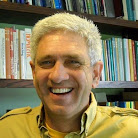December 25: Augustus

[Read Luke 2:1-7] The classic story of Christmas is told to us in Luke: the traveling couple, expecting a child, stayed in a manger because there was no room in the inn, and there he was born – laid in a manger, wrapped in bands of cloth. We were asked to consider each passage through the lens of kings and kingship: I think about Augustus declaring a decree that all should be registered… Could you imagine if a politician today demanded that everyone travel back to their hometown to be counted?? I mean… I can already hear the outcry. How can they demand that I travel there now? I can’t go now, I have too much to do! Who is going to pay for the travel expenses?? Whether or not we would go on such a journey, or grumble about it, really isn’t the point. True kingship is. True kingship is not really about a census, or who is going to pay for it, or anything like that. It is not about our governance or our policies… Or our resistance...






















